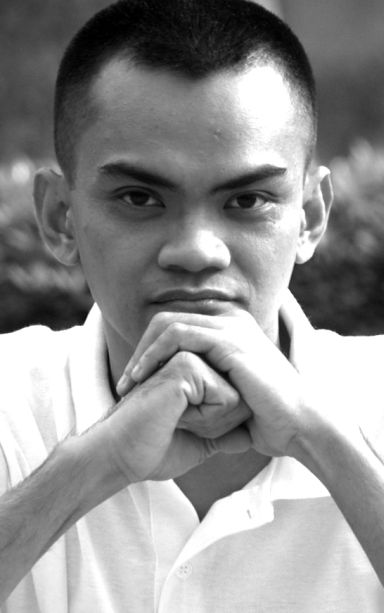
PAREDES
Stopping over at a terminal just before our bus made the ascent to the Islamic city of Marawi, we did something haram or forbidden: steal a few bites of pork adobo from our lunch box while most of the Muslim passengers had gone down for the lunch break.
My parents made sure we brought the whole Tupperware full of adobo for my younger brother Charlo and his fellow Christian friends who personally requested it as pasalubong. As students of Mindanao State University, a predominantly Muslim campus, eating pork is considered haram and Christian students are supposed to observe it too, out of respect for their Muslim schoolmates.
Pork is not also sold at the local market. So my brother and his friends try to alleviate their craving by smuggling pork whenever one of them returned from vacation or a relative came to visit them. So we obliged to act as their mules that day, secretly bringing the contraband in our luggage.
It was our first and only visit to MSU, a sprawling campus overlooking the Lanao lake, which had been my brother’s home since he enrolled there under a state scholarship grant, majoring in history.
We had to be there for my brother as it was a special moment for him and the family — he was graduating as summa cum laude.
That honor easily earned him a post in the history faculty, which my brother served for a few years until he moved to Manila to take up Law in the University of the Philippines in Diliman. He is now a lawyer based in Manila.
As our bus finally made its ascent to Marawi, we started to feel the air getting cooler and noticed several streamers being hung everywhere along the road, announcing to commuters that Mr. or Ms.
So and So has graduated from this or that program or passed this or that board exam.
We learned later that this was a local custom. Maranaos take pride in every achievement of friends or family members, no matter how small.
Well, some of them also love to show off guns and cars. We started to notice that the moment we entered the city. Even boys carried rifles barely taller than them.
My brother met us at the terminal with a Muslim friend and we then boarded a jeepney that would take us to the campus.
Jeepney seats are segregated by gender, and it was not allowed for men to move to the seat across.
Women, even Christians, were advised to wear a scarf around their heads. But I could not remember if my mother did that, although she usually wore a scarf when she traveled.
Arriving at the campus, we passed through the gate which had a sand-bagged machine gun emplacement and an armored personnel carrier parked nearby. Guarding the school were heavily armed soldiers. It was hard to imagine we were entering a university.
In our few days of stay in Marawi, we had to adjust both to the change of climate as well as to the culture.
We soon got used to the sound of distant gunfire which sometimes blended with the calming sound of prayer chants coming from the mosques.
When the Philippine national anthem was sung during the graduation ceremony, less than half the crowd stood. This was my first realization that we were unofficially in a different nation, the Bangsamoro.
In fact, this sense that one is in a place so unlike most of the country became increasingly felt the moment we entered downtown Marawi.
The skyline took a different silhouette, with domes and minarets topped by the crescent.
The narrow pathways and stairways between small shops where we shopped for batik shirts and malongs smuggled “backdoor” from Malaysia and Indonesia reminds me of the souks and bazaars in countries like Turkey and Egypt.
We sampled Maranao food in an eatery at the market and it consisted of spicy curried chicken with finely grated and slightly burned coconut.
My brother could speak Maranao fluently so I was confident we would be safe going around the city where men openly displayed their weapons. It was hard to distinguish civilians from military or police personnel.
But while riding a jeepney, my brother pointed to a group of men, mostly elderly gathered beside a busy street.
He said that this was the place where locals go to engage in or listen to debates usually on current issues. So this was Marawi’s version of the Athenian agora or public sphere, where ideas are freely exchanged.
That somehow gave me a sense of hope.
But last Wednesday, the breaking news on TV showed a totally different image of downtown Marawi: armed men roaming around empty streets brandishing their weapons and waving the black flag of ISIS.
Most residents had left as government troops moved in to fight the terrorists in close quarters combat.
As I watch how the city burns in the exchange of fire, I could only wonder what happened to those people we met during our visit there, particularly my brother’s Muslim friends and his landlord who probably wouldn’t mind if he caught us smuggling haram food for his young Christian lodgers.